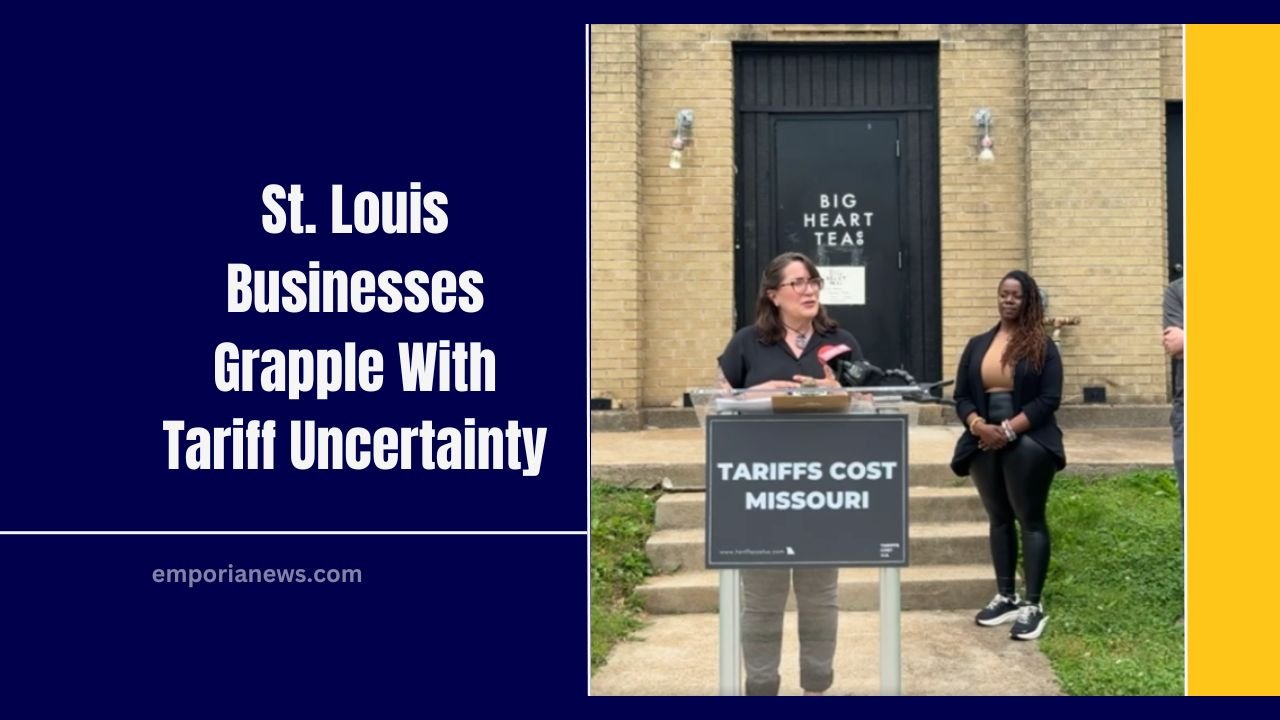As tariff negotiations and legal battles continue, the ripple effects are being deeply felt by St. Louis-area businesses.
From local tea companies to manufacturing firms, the unpredictability of trade policy is straining supply chains, increasing operational costs, and forcing small businesses to make difficult financial choices.
With import taxes on goods rising, companies are struggling to keep prices stable while preserving their bottom lines.
Tariffs and Their Impact on Local Supply Chains
Tariffs are taxes imposed on imported goods, and when they rise, so do the costs for U.S. businesses that rely on foreign materials.
For companies like Big Heart Tea Co. in South City, which imports teas and spices from various countries, the added expenses aren’t easily absorbed.
Beth Burns, owner of Big Heart Tea, shared that her business is currently absorbing the increased costs to avoid passing them on to customers.
But with the potential for more tariffs looming, she’s concerned her company may have to cut jobs or reduce product lines.
This is a story echoed across many St. Louis industries—from retail and foodservice to manufacturing and logistics—each affected differently by where and how they source their goods.
How Businesses Are Adapting
Many local businesses are being forced to adapt in the face of tariff uncertainty. Some of the most common changes include:
- Shifting suppliers to domestic sources when possible
- Reducing inventory variety
- Increasing retail prices cautiously
- Cutting operational costs including workforce reductions
These responses can disrupt customer loyalty, reduce product availability, and impact the overall competitiveness of St. Louis-area businesses.
Economic Pressure on Small Business Owners
For smaller operations with thin profit margins, the added financial pressure is significant. A local survey of small-to-midsize manufacturers by the St. Louis Federal Reserve Bank showed:
- 68% reported increased production costs due to tariffs
- 51% have delayed or reduced investments
- 39% are unsure of their pricing strategy moving forward
This economic climate is creating hesitancy among business owners to expand, hire, or even maintain current inventory levels.
Larger Corporations Also Feeling the Heat
While small businesses bear the brunt of price volatility, larger corporations are not immune.
For instance, St. Louis-based Emerson Electric, which manufactures automation and commercial solutions globally, cited rising tariffs as a reason for reduced profit margins in its latest earnings report.
Similarly, Bunge North America, a food and agribusiness giant headquartered in Chesterfield, has flagged tariffs as a challenge in its soybean trade and logistics operations.
Tariff Uncertainty By the Numbers
Below is a table summarizing how different sectors in the St. Louis area are being affected:
| Sector | Effect of Tariffs | Response Strategy |
|---|---|---|
| Food & Beverage | Increased ingredient and packaging costs | Absorbing costs, reducing product lines |
| Manufacturing | Higher cost of parts and materials | Delaying investments, price adjustments |
| Retail | More expensive imported goods | Limiting inventory, raising prices |
| Logistics | Slower customs processing, higher freight rates | Adjusting delivery schedules |
| Agriculture | Volatile pricing on export crops and imported equipment | Seeking alternative trade partners |
The Legal Landscape: Still Shifting
Much of the tariff uncertainty stems from ongoing litigation and changes in trade agreements. The Biden administration has reviewed and upheld several tariffs from the Trump era, while also pursuing new trade discussions.
Some of the key unresolved areas include:
- Tariffs on Chinese imports under Section 301, still subject to court rulings
- Steel and aluminum tariffs, affecting construction and manufacturing costs
- Agricultural tariffs, which impact food producers both locally and nationally
This legal ambiguity prevents businesses from making long-term decisions, compounding the economic stress already felt.
The ongoing tariff uncertainty is putting immense pressure on St. Louis-area businesses of all sizes. From rising costs and shrinking margins to disrupted supply chains, many local companies are forced to make difficult adjustments.
Without clear policy direction, business owners remain in limbo—making cautious choices while hoping for stability.




